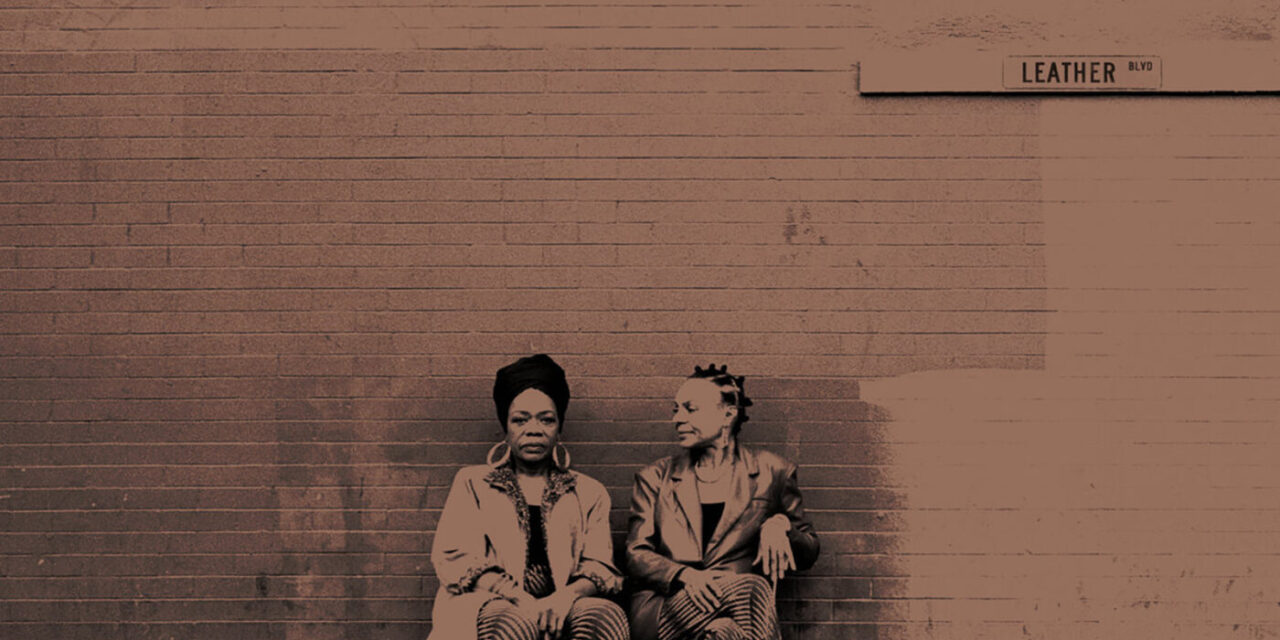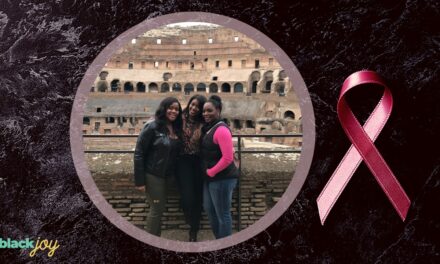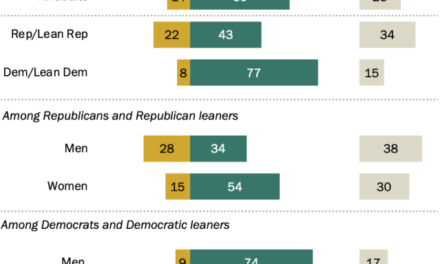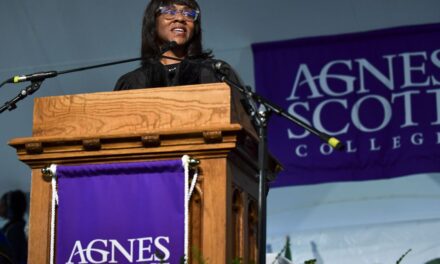
B. Cool-Aid, Leather Blvd.
Conversation with Ahwlee moves at his own tempo, conveying information beyond the articulated words, with just enough pronouncements to keep it moving. The Long Beach–based producer has contributed to tracks for everyone from Amani and King Vision Ultra to Akai Solo, Yungmorpheus, and Your Own Droog. His own releases—from the now legendary A Rap Vacation X-Mas (with mndsgn, 2013) to 1991 (2014) and Life 2 (2016)—have always been chill (the term most consistently applied to his music), but they reach a new peak with the taut yet casual flow of FTRS and FTRS_pt. 2, both released last year. Ahwlee is perhaps most visible as half of B. Cool-Aid, his long-running collaboration with rapper Pink Siifu. Their third LP, Leather Blvd., came out earlier this year, with the vinyl version recently released. I caught up with Ahwlee in the basement recording studio of Loudmouth Records in Bed-Stuy, Brooklyn, where he was hanging with Siifu and friends a day after B. Cool-Aid performed at a sold-out record release show at Nu Blu in the East Village.
—Branden W. Joseph
Branden W. Joseph When did you start producing?
Ahwlee I started making music when I was in seventh grade. I was probably thirteen. Fifteen years ago or something like that.
BWJ What form did it take?
A Originally, I would just loop stuff on some software that my brother had. One of his college roommates saw me doing that shit all the time and gave me his drum machine. It wasn’t actually his roommate; it was his friend that was always on the couch. He was leaving, and he was like, “Hey, your brother be fucking with the beats, so he can have this.” I kept that shit with me and started making beats on it.
BWJ You’ve described yourself as self-taught.
A In a way, yeah.
BWJ How did you develop your skills?
A I’ve had guidance, for sure, over the years. But as far as beats, I was just trying to make what I heard. Nobody, like, sat me down and said, “This is how you make a beat.” I would just push shit until I kind of got it into the arena of what I wanted. Or when I played the keyboard, I would play random keys and try to make it sound right. I didn’t know what I was doing. No theory. I didn’t take music classes until four years later.
BWJ Were you a musical kid?
A Not playing nothing, nah. I just liked music a lot. I had tapes and stuff. I had a Playskool cassette deck and shit like that. I would cry if my mom didn’t play my tape. I just loved music, but didn’t start making music until middle school.
BWJ I want to ask about two sides of your aesthetic. Something like VII (2020) is very electronic, almost glitchy, while other projects, like 1991 and Life 2, veer into R&B smooth.
A I feel that.
BWJ Tell me about those projects.
A Video games and music have always been tied together. Vii is a game that I played for hours and hours and listened to the music of hundreds of times. When I approached that project, I wanted basically to make beats out of all that music. I sampled the game, and other games in the same universe as it, and all kinds of different shit. So, the beats were all over the place, more or less—whatever it was calling for. On some shit like 1991, I was really just trying to figure out the sound that I grew up on. It was like training, almost, working on that album. I wanted to figure out how to do the shit I loved, like Tribe, Dilla, Gang Starr—’90s hip-hop. My bros put me onto that kind of shit. My oldest bro is seventeen years older than me, so he was grown when I was born. Every CD he had, I took.
BWJ Tell be about FTRS and FTRS_pt.2.
A It stands for “Fuck This Rap Shit.” (laughter) Just working, being in the music business, you got to deal with the evils of this shit while you’re in it. You know what I mean? It’s like, Yo, shit be wack, but I ain’t really tryin’ to do nothin’ else either. That’s kind of what it all is for me. It’s flips of shit and beats. Motherfuckers rapping on Instagram and YouTube videos and shit. Something I could do without all the politicking and extra shit that comes with being in the rap game, because I have good and bad experiences from being in the business over the last couple years. It’s, like, just on some getting older shit, really; and seeing everything ain’t how you expect it is. You know what I’m saying?
BWJ FTRS is definitely richer than VII because that’s a different sort of project, but it also seems like there’s a lot more flow, a lot less obvious intention than even something like Life 2.
A You go to the studio, and you play beats for whomever, and it’s like, “Ah, yeah, I want this one. I want that one.” “Cool.” You give them the beats, and then wait, wait, wait. All in that zone, I’m doing hella music, and that’s what FTRS is: it’s the music made while I’m waiting for shit to come together. Once it’s done, I’m like, I got all these beats; boom, just put it out. There’s definitely less thinking, because it’s like a mixtape. Whatever I was working on.
BWJ You talk about getting music from inside to outside, from the mental to the physical. What’s that process entail?
A Sitting still, really. Having a “by myself meeting.” Doing what it takes to keep the connection between myself and reality strong. Daily routines help. You know, like, taking showers, brushing your teeth, and so on.
BWJ How did B. Cool-Aid come about? To me, there’s not just a B. Cool-Aid vibe; there’s almost a B. Cool-Aid “character” in terms of what’s said and how it sounds.
A Man, how did it come about? We was just making tunes. It came about from friendship, for real.
Pink Siifu Yeah, we’re definitely friends, and we got, like, not the same comedy, but we laugh at the same shit. But when I started working with him, I just kept thinking about pimp shit. He was reading Iceberg Slim.
A Oh, yeah. (laughter)
PS I feel like that might be the character. Definitely, right now, with Leather Blvd., it’s not pimp at all; but it’s definitely, like, “player,” with all the jewelry, that type of aesthetic—a little bit smooth, a little Shaft-y. So, I give it to Iceberg and the shit we laugh at. But also, that neo-soul shit—that’s smooth too. Ahwlee’s got hella neo-soul vibes, even with the hard shit.

Ahwlee, FTRS.
BWJ How was making Leather Blvd. different from previous projects?
A We made it in a lot more places than the first ones. Spent a lot of time in Virginia working on it at Jellostone, which is DJ Harrison’s crib, basically. For a lot of the samples, I would do the beats; Liv [Livingston Matthews, aka Pink Siifu] would get on it, and they would replay whatever I sampled. That would be the main way it’s different. There’s a lot more instrumentation on it, so it’s a bit jazzier than BRWN (2017) and Syrup (2019).
BWJ So Butcher Brown gave you stuff to use?
A Hell, yeah. A bunch of shit I could chop and sample. And things I brought in as samples, they replayed.
PS There’s, really, only one real sample on there. Other than that, it’s all original Butcher Brown music and Butcher Brown replaying Ahwlee shit. They were already fans. That why Cory Fonville, the drummer, was like, “Ah, man, y’all want to do B. Cool-Aid? I got y’all.” He delved into the archives and gave us shit from five, six years ago that’s been laying around in the studio. He’s like, “Bro, we ain’t using these. Fuck with this.” That was the first part of “Cnt Go Back (Tell Me),” and then Ahwlee did some shit on the intro, and then John Bap, Maurice II, he did the outro. “Wassup,” that’s another old one. Ahwlee just chopped that up and shit. Like, they just gave us shit that’s just been sitting from four or more years ago. Butcher Brown shout-out!
A I got a folder of sessions from DJ Harrison. It was rehearsals, unreleased cuts, and recording sessions. I went through those and made a bunch of beats. DJ and I worked some beats out for a few days, and the rest was beats and songs that Pink Siifu and I already made that we had DJ and the band replay.
BWJ Final question: How come you don’t rap more? Your part on Siifu’s “Pray Everyday” is part of what makes it a classic.
A Man, just you wait.
PS It’s coming! It’s coming, bro.
A Yeah, just you wait.
BWJ Were you hesitant to put yourself out before?
A I guess, yeah, I was kind of hesitant. It’s like, I’ll be in the studio, and I’ll be like, I can rap better than that! Low-key, I would be feeling, Man, I should be on this shit. Alright then, let me record some shit. I’ve been recording stuff, but I’ve just been stacking it up, thinking what I wanted to use.
BWJ No spoilers? No previewing it here?
A Nah. It’s coming. I got some shit.
Leather Blvd. is available here.





